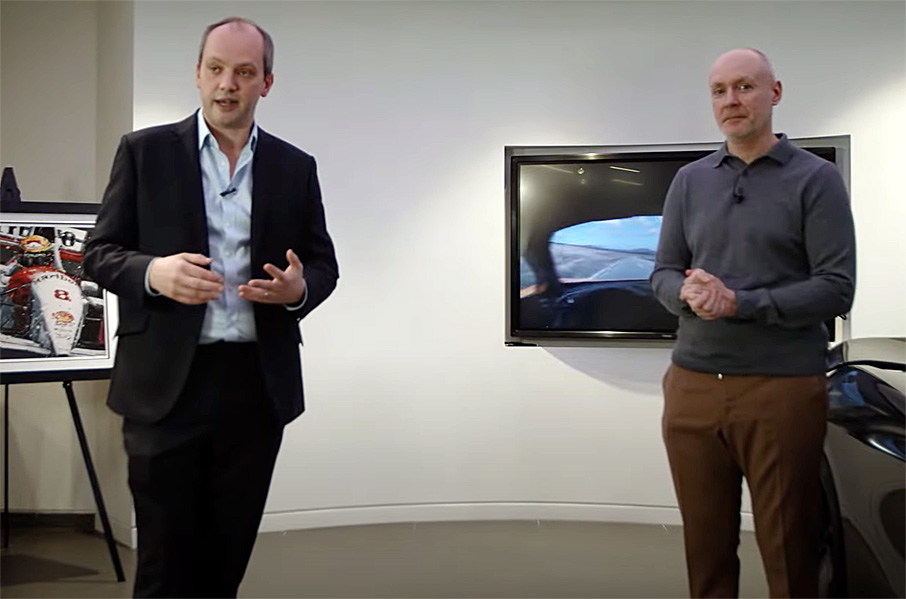Microsoft and Wejo process vehicle data for smart cities
- January 18, 2022
- Steve Rogerson

In collaboration with Microsoft, Wejo Neural Edge uses machine learning to address data overload and deliver faster, more cost effective and sustainable vehicle communication insights for smart city planning.
UK-based Wejo Group announced at this month’s Consumer Electronics Show in Las Vegas that it is developing the Neural Edge platform that will enable intelligent handling of data from vehicles at scale, while providing insights that protect privacy and empower automotive innovation.
Collaborating with Microsoft, Wejo made the announcement virtually from the Microsoft Partners Pavilion at CES.
With so much rich data coming from vehicles, latency and data storage costs are potential obstacles in harnessing and scaling the power of real-time vehicle communications, both with other vehicles and the infrastructure that are set to power smart cities.
Leveraging its collaboration with Microsoft Azure and powered by Wejo’s Adept platform, Neural Edge optimises how these data are managed within the vehicle, further processes them at the edge and communicates to the cloud. This process can not only reduce data overload and increase data insights but reduce costs for automotive manufacturers and improve manufacturing of the vehicle to provide a better driving experience, supporting safer vehicles, enabling advancements in EV and autonomous mobility, and reducing congestion and emissions.
“When I started Wejo in 2014, I knew that the proliferation of new mobility technology would drive data to a tipping point,” said Richard Barlow, CEO of Wejo. “And we are at that point today. With today’s vehicles producing approximately 25Gbyte of data per hour, and as vehicle technology advances adding more sensors, data filtering and neural edge processing technology are essential to reduce this overload and drive the industry forward. Partnering with Microsoft and Palantir has positioned us to address this problem today, and to look ahead at the benefits of Wejo Neural Edge as a driver in the growth of autonomous mobility.”
Neural Edge filters and analyses vast amounts of AV, EV and CV data before transmitting only the essential information to the cloud. This is made possible by using in-car edge processing that Wejo is developing to filter only useful and valuable CV data before they are transmitted to the cloud.
The embedded software technology in combination with Microsoft Azure can reduce network and storage costs for the auto manufacturers by optimising the data coming from the vehicle. Leveraging embedded software within the vehicle chipset, Neural Edge is designed to choose and prioritise intelligently the data to be sent from the vehicle to the cloud.
Using machine-learning algorithms to reconstruct vehicle journey and event data, it can take a fifth of the data from autonomous, electric and other connected vehicles and reconstruct them to represent all of the data, without any loss in data fidelity or integrity. The positive environmental impact is significant, as less data require less storage which in turn reduces power consumption.
Neural Edge enables the standardisation and centralisation of the data that come from autonomous, electric and connected vehicles. Not only does this provide a key building block for communication in near real time, but it also supports communication with infrastructure services such as road signs, traffic lights and parking lots, so vehicles can anticipate the road ahead and optimise mobility experiences.
It can deliver a digital twin of the vehicle and cities to reshape how to view the entire product and service ecosystem related to mobility. In a simulation environment, a digital twin of the USA could be constructed to simulate how vehicles in different cities need to respond and navigate without having to outlay massive infrastructure costs of physical hardware or vehicles to be able to relearn how a vehicle should behave as an AV or EV in a smart city.
“At Wejo, we believe that digital twins will reshape everything from road safety, to insurance, advertising, after-sales and more,” said David Burns, chief technology officer at Wejo. “With Wejo Neural Edge we can look at what a CV is doing a kilometre away, and then alter and change the driver experience of an AV based on the information that is coming from down the road.”
As more car makers work to harness their vehicle data, Neural Edge and Wejo’s common data model can enable different manufacturer makes and models to speak the same data language, a key component supporting vehicle-to-vehicle communication and vehicle communications with infrastructure and services. Wejo’s partnership with Colorado-based software company Palantir furthers how this model can adeptly address the problems of today and inform decisions for tomorrow.
“Our ongoing partnership with Wejo is focused on the most complex and critical challenges facing the future of mobility,” says Shyam Sankar, chief operating officer of Palantir Technologies. “What Wejo is building atop Palantir Foundry, including their cutting-edge neural edge technology, is a testament to the depth of their vision, speed of execution and power of combining our technologies.”
Founded in 2014, Wejo employs more than 250 people and has offices in Manchester in the UK and in regions where Wejo does business around the world.





